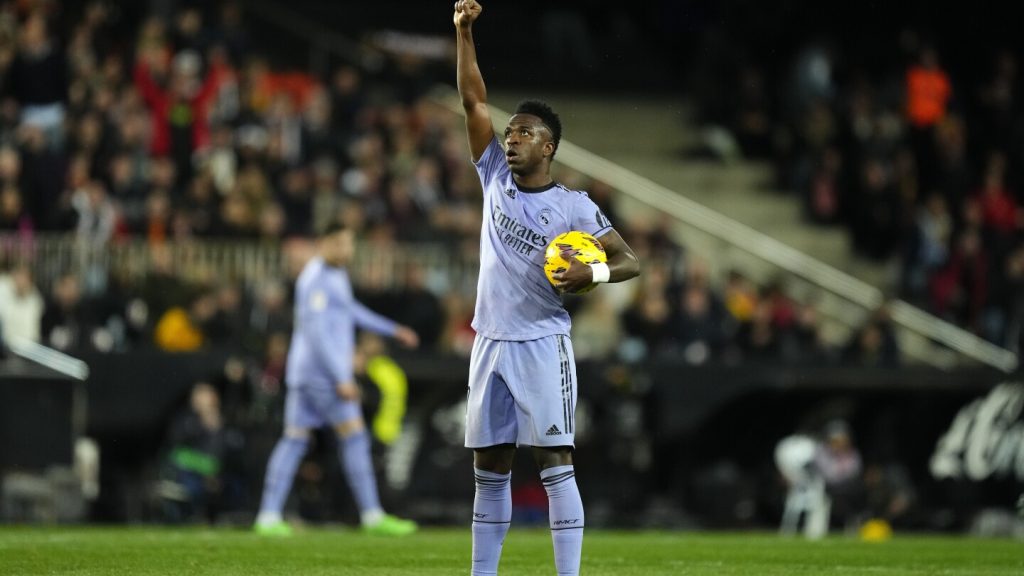Despite hopes that the incident at Mestalla Stadium last year would mark a turning point in the fight against racism in Spanish soccer, Real Madrid forward Vinícius Júnior continues to be subjected to racist abuse in Spain. The Brazilian recently broke down in tears while discussing the insults aimed at him, highlighting the ongoing issue of racism in the country. Despite initial uproar and calls for action, Vinícius has faced new waves of racist and hate insults in matches, indicating that the problem persists. Some organizations have condemned the lack of progress in combating racism in Spanish football, citing a feeling of impunity among fans that allows such behavior to continue.
Incidents of racist abuse targeting Vinícius have occurred both on and off the field, with reports of hate chants and derogatory slurs being directed at the player by fans from various clubs. Real Madrid has taken action by reporting these incidents to the appropriate authorities, including the prosecutor’s office for hate crimes. The Spanish government has also set up a permanent committee to address violence, racism, xenophobia, and intolerance in sports, working with the soccer federation and the Spanish league to punish clubs and fans engaging in discriminatory behavior. Despite these efforts, the issue of racism in Spanish soccer remains pervasive, with calls for stronger measures to be taken against offenders.
While some progress has been made in holding fans accountable for racist behavior, the incidents involving Vinícius have exposed ongoing challenges in addressing hate crimes in Spanish football. Hardcore fan groups, known as ultra groups, are often implicated in these incidents and have been difficult to eradicate due to their militant nature. Prosecutors have faced challenges in identifying perpetrators when they act in groups, leading to some cases being shelved. However, there has been an increased focus on hate crimes since the incident at Mestalla, with prosecutors working to ensure that those responsible for racist behavior are held accountable.
The Spanish league, led by president Javier Tebas, has spoken out against racism and hate crimes in soccer, emphasizing the need to eradicate such behavior both inside and outside stadiums. La Liga has implemented measures to punish clubs and fans engaged in discriminatory behavior, including fines, stadium bans, and long-term restrictions on attendance. Despite these efforts, there is a recognition that more needs to be done to eliminate racism in Spanish football. Society, as well as football fans, are being called upon to reject hateful attitudes and support the eradication of discrimination in sports. The ongoing fight against racism in Spanish soccer highlights the importance of continued awareness, education, and enforcement to create a more inclusive and respectful environment for all players and fans.


